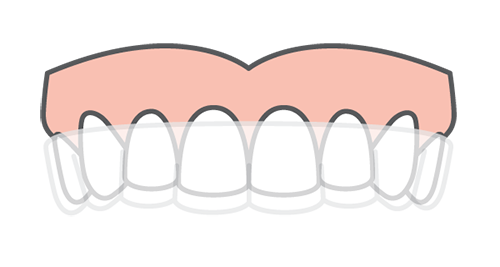If you’re a human, you probably clench and grind your teeth in moments of stress and sometimes during your sleep. This is natural and normal. However, when clenching and grinding become excessive, it can wear down your teeth over time. It can also lead to TMJ dysfunction or TMD which causes a lot of pain and tension in the jaw that radiates into the face, head, neck, and shoulders. But grinding and clenching isn’t the only thing that causes TMD. Read on to learn more about this pain in the neck and how we can help ease your symptoms and protect your teeth.
We are committed to staying on the cutting-edge of dental techniques and technology to bring our patients the most advanced dental solutions on the market. With a friendly smile and personalized patient care, Fuquay Family Dentistry provides a dental experience unlike any other.
TMJ dysfunction or TMD can put a real damper on your daily quality of life. Chronic teeth grinding and clenching (bruxism) and jaw tension can cause a lot of pain and put a lot of stress on your teeth. If you’re living with sore teeth, sore jaw joints, and maybe chronic headaches, migraines, or neck and shoulder pain, you may be suffering from TMD.
Not only are you living with chronic pain every day, but your teeth will be worn down over time, eventually requiring restoration or replacement. So, what can we do? Keep reading to learn more about TMJ/TMD, what causes it, what signs to look out for, and how we can help. We can provide a number of solutions to suit your needs and stop your pain at the source.
TMJ stands for temporomandibular joint—aka the jaw joint! TMD stands for temporomandibular joint dysfunction, which describes any pain or problem associated with the jaw joint. To make things confusing, sometimes the condition is referred to as TMJD.
Signs and symptoms of TMD include teeth grinding and clenching, chronic jaw pain, jaw popping, locking or clicking, headaches, migraines, neck and shoulder pain, and worn-down teeth. You may not even be aware that you clench and grind your teeth at night!
As we discussed in the intro, TMD is directly linked with bruxism (grinding and clenching). It’s hard to say which causes the other—it’s a chicken-egg situation. Other causes of TMD may include misaligned teeth or bite, or a traumatic injury to the joint itself.
That depends on what’s really causing the problem. The first step in seeking relief is to come see us for a comprehensive consultation. We can see how your teeth align and how your bite matches up, look for abnormal wear and tear on your teeth, and inspect your jaw joint to find the culprit.
We can use our CBCT scanner to take 3D digital images of your internal oral health structures to get to the bottom of it. Once we determine the root cause of the problem—often times there are numerous factors at play—we can design a treatment plan to eliminate the tension that’s causing your pain.
Whether your TMD is caused by malocclusion (teeth and bite misalignment), harmful habits, bruxism (clenching and grinding), or an issue with the joint itself, we can help. The first step is recognizing there is a problem and seeking treatment. You’re halfway there!
Self-awareness is key. If you clench and grind, notice and make a concerted effort to stop. Quit harmful habits like nail biting and lip chewing.
Practice gentle massage and stretching techniques at home. You can also use a cold compress on more painful days.
We may use orthodontics to correct your teeth alignment and bite, possibly in combination with other techniques to eliminate contact points between top and bottom teeth.
We will likely prescribe a custom nightguard to minimize clenching and grinding during sleep to allow your jaw to rest overnight and protect your teeth from damage.

If you have any questions about TMJ/TMD or you’re ready to schedule a consultation with your Fuquay-Varina dentists, Dr. McCormick, Dr. Meunier, or Dr. Adams at Fuquay Family Dentistry, give us a call today! We look forward to meeting you and helping you achieve your best smile and your best self.
| Monday | 7:30AM - 3:30PM |
| Tuesday | 7:30AM - 3:30PM |
| Wednesday | 7:30AM - 3:30PM |
| Thursday | 7:30AM - 3:30PM |
| Friday* | 7:30AM - 12:30PM |
| *Every 1st Friday of the Month | |